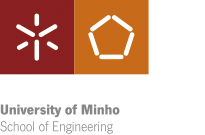Through the participation of ALGORITMI Research Centre, the UMinho takes part as a partner in the project DRIVES – Development and Research on innovative Vocational Educational Skills.
Oriented towards education and training in the automotive sector, the project was recently approved (September 2017) and will last for 4 years, with total funding of 4 million euros. The consortium is composed of 24 partners from 11 European countries, among which universities, public and private entities and organisations working in the automotive sector.
DRIVES aims at delivering human capital solutions to supply chain SMEs through the establishment of an Automotive Sector Skills Alliance covering all levels of the value chain (vehicle production, automotive suppliers and automotive sales and aftermarket services). The project will enable the realisation of the aims of the Blueprint, within the scope of a working group recently created by the European Commission, "GEAR 2030", which has been developing a series of analysis and studies on mobility automation in Europe, namely related to connected and autonomous vehicles, two of the areas Europe is interested in investing, while considering environmental, safety and privacy issues.
"The challenge was launched by the Municipality of Mangualde, in Portugal. The city hosts a technology park, requiring a high number of skilled workforce. This project was proposed, in the area of professional training and qualified employment, as a response to this challenge, not only at national level, but also considering the industry sector around Europe", José Manuel Machado, researcher at ALGORITMI, refers. "Essentially, the goal is to conduct a series of actions at European level to train qualified personnel across the participant countries", the researcher adds.
The partnership aims mostly at exchanging good practices and develop skills to increase the automotive sector value chain. As a project under the action "Cooperation for innovation and the exchange of good practices", the consortium will focus on human resource training, proposing practical initiatives to face automotive sector challenges, particularly through enabling worker mobility in this activity sector. The project will seek to harness existing and proven skills frameworks in European countries, such as United Kingdom or Germany, modernise them to cope with future automotive trends and look at the deployment into new countries, like for instance Portugal, Slovakia, Romania, Spain, Czech Republic, etc., seeking to implement a common framework around Europe. An IT infrastructure will be implemented to detail common job requirements, which will be available for job seeking, training providers, as well as forming a market place job offers on local, nation and European levels.
Apart from higher education institutions, such as UMinho and the Polytechnic Institute of Viseu in Portugal, among other European universities, the consortium gathers several companies, professional associations and entities related to vocational training. The group also counts with associated partners, whose role is to contribute to the implementation of specific project activities and support the dissemination and sustainability of the Alliance. Associated partners of DRIVES are, for example, AIMMAP and Mangualde Municipality, in Portugal, and Jaguar Land Rover Limited, from the United Kingdom, among others.
UMinho's intervention will be led by José Manuel Machado and his team and will focus on establishing a pool of skills and standard definition for future sector professional (aiming at creating the aforementioned skills framework), cooperating in creating an online campus (education and training platform), and also collaborating in establishing European Certification Services, by which these certifications will be recognised by the industry at European level. "Although the project has only just started, the EEUM, and particularly, the ALGORITMI Research Centre, will certainly benefit from participating in this consortium. This will allow us to be involved in research, development and innovation (R&D&I) in a very specific industrial sector, creating opportunities to attract both financial and human resources to boost not only project activities but which will also allow us to explore other research areas that may deploy future projects", José Machado concludes.


